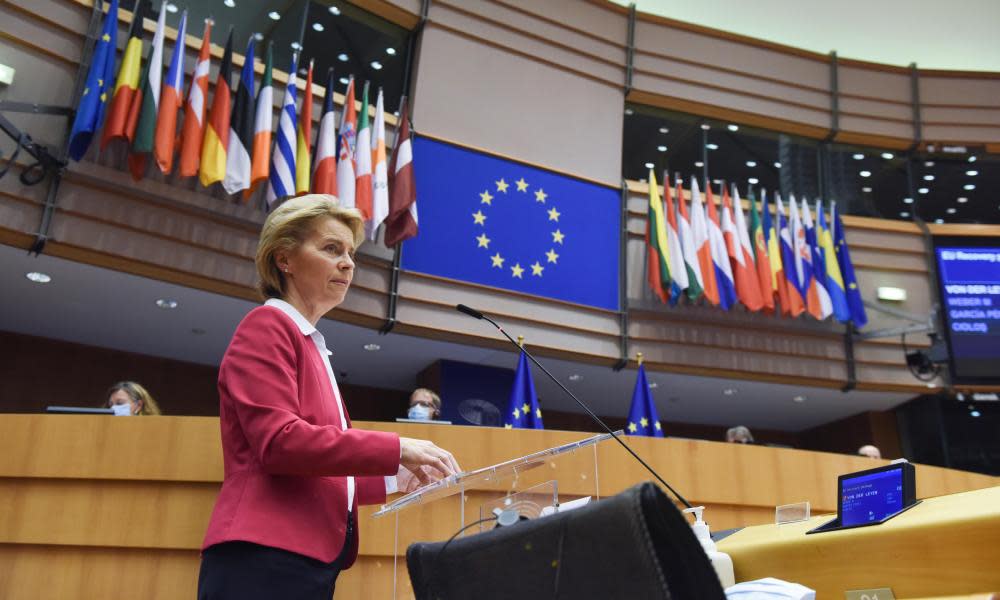June Brexit summit on cards as talks head for deadlock

Brexit talks are heading towards deadlock as senior advisers in Brussels and London concede a breakthrough in the final round of talks next week is unlikely.
It means a high-level political summit between Boris Johnson and the European commission president, Ursula von der Leyen, in the middle of June is now almost certain as talks among officials on a trade deal and the future relationship hit the buffers.
At a London seminar on Friday, Barnier’s senior adviser, Stefaan de Rynck, revealed he thought there was little chance of a deal on fishing being agreed by the 30 June deadline.
Related: Brexit talks 'risk stalemate' if no progress on key issues
Missing this deadline is significant as this was one of the conditions set out in the political relationship as necessary before a wider free trade deal can be secured.
“I would be surprised if we get to an agreement by the end of June, but it is not excluded, but it is a tall order clearly because we are nearly June,” De Rynck told the webinar at the Institute for Government on Friday.
This chimes with the outlook of the UK: this week the UK’s chief negotiator, David Frost, told a select committee that he was “beginning to think we might not make it by 30 June”.
The deadline was built into the political declaration as an aspiration but the EU has insisted that there must be an outline agreement in place before a wider free trade deal can be secured.
The UK has a one-off right to request an extension to the transition period to give a deal more time but Johnson has repeatedly said he will not do this.
Some believe this will lead to a last-minute narrow trade deal in October or November, but De Rynck said this would still mean “disruption” on 1 January, warning car manufacturers they would have to restart their no-deal planning.
De Rynck said the EU was pleased with the “positive” developments on the Northern Ireland protocol regarding checks and that Michael Gove’s command paper on the subject would now “unlock the process”. But he said the EU and businesses needed to see more “operational detail”.
Related: Brexit: Is the UK headed for a no deal?
As both sides prepare for talks next week, they acknowledge fundamental disagreements on state aid, governance and a level playing field in work and environmental standards, but also around things such as data sharing and free movement.
De Rynck said the UK had continued its “have your cake and eat it” approach, seeking benefits of the free market without compromise; wanting free movement for workers in the services sector, for example, while at the same time closing borders to EU citizens in the UK.
Barnier recently warned the approach would falter because “you can’t dance at the same time at two wedding parties”.
De Rynck revealed the EU was surprised to hear in the last round of talks, that the UK wanted to continued real-time access to passenger records within the Schengen area but wanted to “deviate” from legally binding issues such as privacy.
He also pushed back against suggestions that Barnier would like to be more flexible in talks but was hidebound by EU leaders’ mandate.
“I don’t think there’s any appetite on the EU side to revise the mandate,” he said, pointing out it was only agreed in February after a lengthy consultation process.


